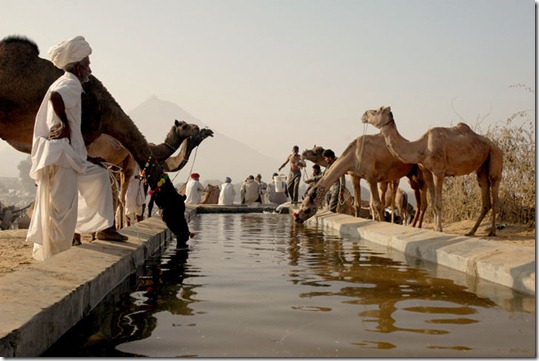Molta Confusione! – The Solutions Posted by Serena on Jun 23, 2014 in Grammar
Here, as promised, are the solutions and explanations to last weeks quiz on the use of molto, molta, molti or molte. We asked you to fill in the gaps in the following sentences.
Notice that when molto means ‘many’ or ‘a lot of’, it’s an adjective (i.e. it refers to a noun), and therefore it changes its ending according to the noun. When molto translates as ‘very’, ‘really’, or ‘a lot’, it’s an adverb (i.e. it supports a verb, an adjective, or another adverb), and therefore it doesn’t change. Let’s have a look at the following examples, in which I have colour coded the adjective in purple, and the adverb in blue:
1. Quest’anno ci sono molte amarene sull’albero = This year there are a lot of sour cherries on the tree: molte is an adjective referring to amarene = sour cherries, a feminine plural noun
2. A Geoff e a me piace molto passeggiare in montagna = Geoff and I like walking in the mountains a lot: molto is an adverb referring to the verb piacere = to like
3. Quando siamo andati a San Marino abbiamo visto molti turisti da tutte le parti del mondo = When we went to San Marino we saw a lot of tourists from all over the world: molto is an adjective referring to turisti = tourists, a masculine plural noun
 |
| ho molta sete … photo by Koshy Koshy |
4. Non faccio altro che bere perché ho molta sete = I keep drinking because I’m really thirsty: in the Italian sentence molto is an adjective referring to sete = thirst, a feminine singular noun (Literally: … I have a lot of thirst). In the English sentence however, it’s used as an adverb referring to the adjective thirsty: I’m really thirsty. This is a case in which the two languages use two completely different constructions.
5. Oggi ho cucinato molto, così domani sono libera di andare al mare = today I’ve cooked a lot, so tomorrow I’ll be free to go to the sea: molto is an adverb referring to the verb cucinare = to cook
6. Geoff ha speso molto tempo a tagliare l’erba questo pomeriggio = Geoff spent a lot of time cutting the grass this afternoon: molto is an adjective referring to tempo = time, a masculine singular noun
7. La settimana scorsa è stata molto calda = last week was very hot: molto is an adverb referring to the adjective calda = hot
8. Siamo ridiscesi giù a valle molto velocemente = we descended back down into the valley really quickly: molto is an adverb referring to the adverb velocemente = quickly
9. A Ravenna abbiamo visto molti bellissimi mosaici bizantini = In Ravenna we saw many beautiful Byzantine mosaics: molto is an adjective referring to mosaici = mosaics, a masculine plural noun
10. L’aereo è atterrato molto in ritardo = The plane landed very late: molto is an adverb referring to the adverbial construction ‘in ritardo’ = late
To finish with, here’s a sentence in which molto appears twice, once as an adjective, and once as an adverb. Which is which? L’inverno passato non è stato molto freddo, ma abbiamo avuto molta pioggia = Last winter wasn’t very cold, but we had a lot of rain: molto freddo = very cold (adverb); molta pioggia = a lot of rain (adjective)
For more information I suggest that you read these blogs: Using Molto And Tanto and How To Use Molto

Build vocabulary, practice pronunciation, and more with Transparent Language Online. Available anytime, anywhere, on any device.




Leave a comment: